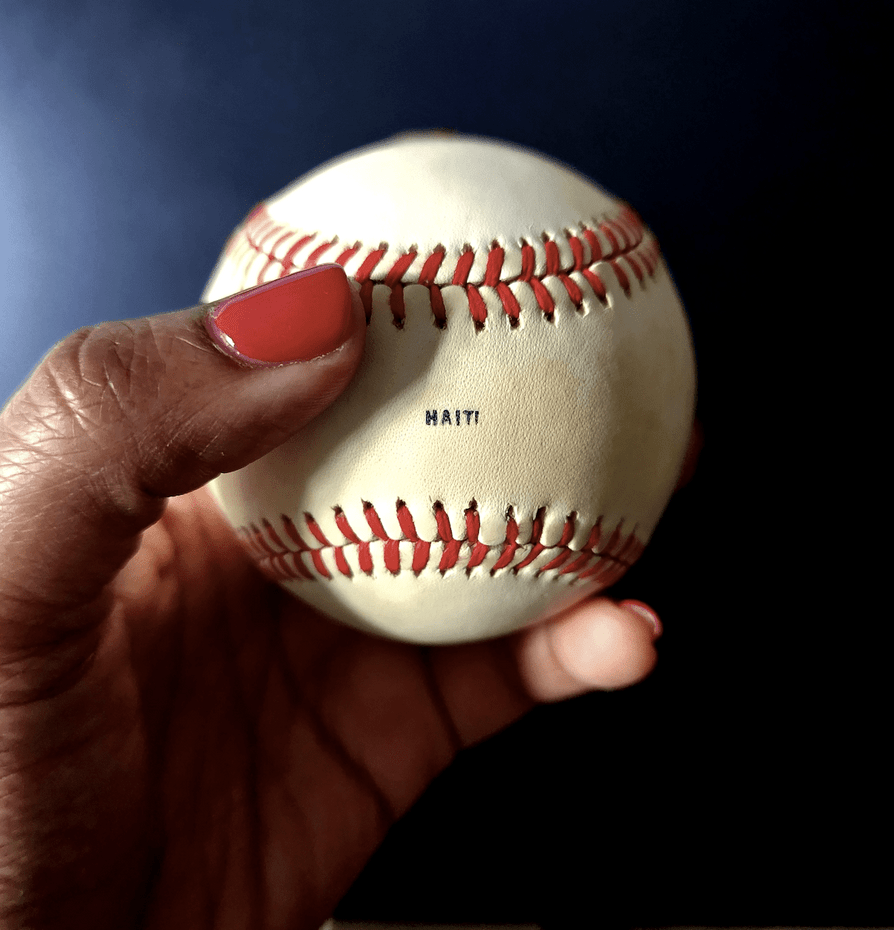How Major League Baseball Could Help Canada Help Haiti

July 18, 2024
On July 16, Major League Baseball (MLB) hosted its 94th All-Star Game. Despite record-low TV ratings in the past two years, the “midsummer classic” remains an important tradition for sports purists and occasional fans alike.
As I type this essay in my home office, a commemorative baseball from the 1979 All-Star Game sits encased on my desk. I don’t really follow the sport, though I fancy the business of it. I have no clue what Los Angeles Dodger and superstar Shohei Ohtani’s batting average is, but I can enthusiastically detail his lucrative contract and sponsorship deals.
The encased baseball was made in Haiti, and it’s the HAITI-stamped side of the ball that I’ve displayed for it to be unmissable. It’s a nod to my parents’ place of birth and a relic of a time when the country was the world’s most important maker and exporter of baseballs, with giant sports equipment companies like Wilson and Rawlings setting up shop in Port-au-Prince, Haiti’s capital. By the early 1980s, the distinctive white ball with hand-threaded red stitching represented a Haitian export worth more than $30 million U.S. dollars per year.
In Haiti, the mid-80s signaled the end of dictatorship with an aftermath of enough political unrest to sway, over time, many foreign manufacturers elsewhere. And just like that, the country stopped making and exporting baseballs, and thousands of jobs were lost with a trickle-down effect that’s not hard to imagine.
Since the assassination of then-President Jovenel Moïse in the Summer of 2021, one would be forgiven for getting vertigo just from following the revolving doors and rigmarole of Haitian politics. But very recently, at last, reassuring steps—such as the successful appointment of a transitional presidential council and the choice of adroit former PM Garry Conille as prime minister with a new ministerial cabinet—have forecast the return of stability in what remains the Pearl of the Antilles.
Canada is home to a vibrant Haitian diaspora, Québec boasting the country’s largest one. It spans generations and continues to be instrumental in the province’s economic and social fabric. But since the turbulence in Haiti following Moïse’s death and despite its good faith, it seems like Canada has struggled to laser-in on how it could concretely accompany Haiti in its next steps and contribute to re-establishing safety in the capital — where gang members have taken over almost 80% of the territory.
The return of large international corporations in Haiti is an essential part of its future development. Canada could facilitate trade missions and sustainable business partnerships between both nations
In late June, the first contingent of Kenyan security forces arrived in Haiti to work with their Haitian counterparts in policing Port-au-Prince, making it easier for Canada to forgo the idea of possible armed assistance.
From mismanagement of funds by donor nations to ill-fitted programs in receiving countries, foreign aid often carries a pejorative connotation despite the lessons learned and correctly applied in recent years. There doesn’t seem to be a more opportune time to review the nature of Canada’s involvement in Haiti. Instead of “aid,” we should be considering partnerships. There are many Canadian companies that could benefit from the island’s proximity and labour skills, its sharp minds and the population’s median age of just under 23 years. It’s a cohort that can and wants to learn and contribute.
The return of large international corporations in Haiti is an essential part of its future development. Canada could facilitate trade missions and sustainable business partnerships between both nations with tax incentives, for example. It’s a fiscal strategy that Haiti could also apply to appeal to international investors, as it had to accommodate foreign investments in the past.
Today, big businesses can learn from smaller ones. Ontario’s Hummingbird Chocolates works with Haitian farmers and uses their cocoa beans to make some of the best chocolate I’ve ever had. Noula — a co-op based in Québec — has developed a supply chain between Haiti and North America to source some of the products it sells, including soap, from Haiti. Barb Stegemann, a former contestant on the CBC’s Dragons’ Den, is CEO of the very successful perfume brand The 7 Virtues. Her must-have Vetiver Elemi perfume is made in partnership with Haitian farmers who grow vetiver. The country is one of the few where the unique bunchgrass is found. These types of sustainable and fair business alliances can be replicated on larger scales and benefit both Haiti and Canada.
Can the manufacturing of sporting goods return to Haiti? Of course, it can. Could MLB demand that its baseballs be made in Haiti like they once were? That would be an incredible show of moral leadership and unique business flair, and it would have a more lasting impact than the million dollars the league pledged to Haiti after the 2010 devastating earthquake that hit the country.
The influence of sports leagues has grown exponentially in recent years — from their continued economic growth to their impact on media, business, politics, and social movements. That power comes with responsibility. And the league knows it. In 2021, following Georgia’s new and controversial voting law, MLB moved its all-star game from Atlanta to Denver.
If MLB and the companies it works with take the first pitch in reprising and normalizing business relations with Haiti, why would others — like Canada — not follow?
Martine St-Victor is a communications strategist and general manager of Edelman in Montréal. She’s also a regular contributor on Radio-Canada television and radio, and a monthly columnist at La Presse and the Montreal Gazette.
